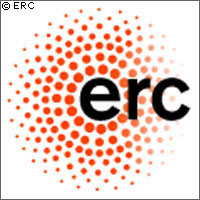ERC receives over 2,000 applications for Advanced Grants
The European Research Council (ERC) has received 2,167 applications for its Advanced Grants. These included 766 proposals in the area of life sciences and medicine, 997 in physical sciences and engineering, and 404 proposals for social sciences and humanities research. The ERC Advanced Grant is targeted specifically at established researchers from any field of research. These are by and large independent researcher leaders in their own right. Applicants are expected to have a strong track record in carrying out ground-breaking research stretching back at least 10 years. As with the ERC's Starting Grants, which are aimed at younger researchers, the only criterion on which applications will be judged is scientific excellence. The President of the Scientific Council of the ERC, Fotis Kafatos was particularly pleased with the high quality of the applicants for the scheme. 'The number of Advanced Grants applications is considerably lower than the number of applications to the first call for Starting Grants last year. This is not a surprise to us as limiting measures were taken by the ERC Scientific Council after the overwhelming mass of applications received for the first ERC call (over 9,000),' he commented. 'Now, after the first evaluation stage, we can see that the overall quality of the proposals submitted is really excellent.' An analysis of the applications reveals that just 14% of the proposals came from women. Professor Kafatos acknowledged that this was a problem, and promised that the ERC would do what it could to address the issue. 'We are aware that the relatively low proportion of women applicants is a general problem in European research, especially in the target group of established researchers,' he stated. 'This is a concern which the ERC will continue to address at every level.' Applicants for funding came from 50 nationalities and were linked to host institutions in 36 different countries. Host organisations recognised must be located in an EU Member State or a country which is associated to the Seventh Framework Programme (FP7). The Associated Countries are Albania, Croatia, Iceland, Israel, Liechtenstein, FYR of Macedonia, Norway, Montenegro, Serbia, Switzerland, and Turkey. Overall the average age of applicants was 52. This reflects the target group of the Advanced Grant, namely established researchers. Successful applicants will be eligible to receive a grant totalling €3.5 million. The budget allocated for this call amounts to €517 million. Currently, all proposals have gone through the first stage of peer review. The next stage involves further evaluation through the months of June to September.



